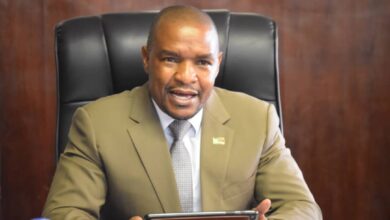Navigating Zimbabwe’s Political Landscape: Exploring Solutions for Sustainable Governance
17 May 2024
ZimTimes Staff
Zimbabwe, a nation rich in cultural heritage and natural resources, has weathered political storms, economic instability, and social challenges over the years. At the heart of its journey lies the quest for political solutions that can pave the way for stability, prosperity, and inclusive governance.
The country’s political landscape has been marked by significant events, from the liberation struggle against colonial rule to the transition from white minority rule to independence in 1980. However, in recent decades, Zimbabwe has faced complex challenges, including political polarization, economic downturns, and concerns over human rights.
In 2017, Zimbabwe witnessed a historic transition with the resignation of long-serving President Robert Mugabe.
Furthermore, the adoption of a new constitution in 2013 was a significant step towards political reform. The constitution aimed to strengthen democratic institutions, protect human rights, and promote socio-economic development. However, its effective implementation remains a challenge, requiring political will and concerted efforts from all stakeholders.
Elections play a crucial role in shaping Zimbabwe’s political landscape. While elections have been held regularly, concerns have been raised about their credibility and transparency. Electoral reforms, including the depoliticization of electoral institutions, updating voter registers, and ensuring equal access to media for all political parties, are essential for restoring public confidence in the electoral process.
Moreover, promoting youth participation in politics is vital for the country’s future. Zimbabwe has a young population, and engaging young people in political processes can bring fresh perspectives, ideas, and energy to the table. Investing in youth education, leadership development, and civic engagement programs can empower the next generation of leaders and foster a more inclusive political environment.
Addressing socio-economic disparities is also crucial for long-term political stability. Zimbabwe faces persistent challenges, including high unemployment rates, poverty, and inequality. Sustainable development policies that prioritize job creation, investment in infrastructure, and social welfare programs can address these challenges and reduce the risk of social unrest.
Furthermore, combating corruption is essential for building trust in government institutions and promoting good governance. Corruption erodes public confidence, undermines the rule of law, and diverts resources away from essential services. Implementing anti-corruption measures, strengthening oversight mechanisms, and promoting transparency and accountability are critical steps towards creating a more ethical and efficient political system.
Regional and international cooperation can also contribute to Zimbabwe’s political stability and development. Engaging with neighboring countries, regional organizations such as the African Union and the Southern African Development Community (SADC), and international partners can provide support, expertise, and resources for implementing political reforms and promoting sustainable development.
In conclusion, Zimbabwe’s political landscape is multifaceted, characterized by challenges and opportunities. Achieving sustainable political solutions requires a holistic approach that addresses issues such as political dialogue, electoral reform, youth participation, socio-economic development, anti-corruption measures, and international cooperation. By working together and embracing inclusive governance, Zimbabwe can build a brighter future for its citizens and realize its full potential as a nation.









